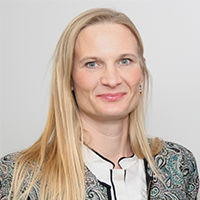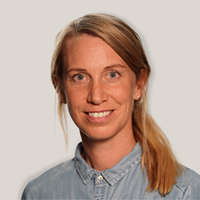30 millioner kroner til tre forskere fra Biomedicinsk Institut
Tre forskere fra Biomedicinsk Institut modtager femårige bevillinger fra Novo Nordisk Fondens Research Leader Programme. Bevillingerne er alle på 10 millioner kroner.

Programmet har til formål at muliggøre fremragende forskning og understøtte udvikling af forskningsledere. Det består af tre typer af bevillinger, der er målrettet specifikke stadier eller typiske karrieretrin for en forskningsleder, og instituttets forskere er fordelt på alle tre kategorier:
Emerging Investigator: Målrettet unge lovende forskningsledere, der skal til eller er i gang med at etablere deres forskningsgruppe og egen forskningsprofil. Her modtager adjunkt Anniek Lubberding bevillingen til projektet ”Let’s not PASs on a novel, unique, cardiac-safe drug target for type 2 diabetes: The PAS domain of K+ channel Kv11.1”.
Ascending Investigator: Målrettet dygtige forskningsledere på lektor-niveau til at styrke deres forskningsgruppe og profil. Her modtager lektor Lykke Sylow bevillingen til projektet ”Unveiling the coordination between the mitochondrial and cytosolic translatomes in muscle to mitigate metabolic dysfunctions”.
Distinguished Investigator: Målrettet internationalt anerkendte professorer. Her modtager professor Signe Torekov Sørensen bevillingen til projektet ” FutureShape Family – AI-Enhanced Family Interventions Paving the Way for Sustainable Childhood Well-being”.
Du kan finde en beskrivelse af projekterne herunder samt links til forskernes gruppesider.
Distinguished Investigator
Professor Signe Torekov Sørensen

Title: FutureShape Family – AI-Enhanced Family Interventions Paving the Way for Sustainable Childhood Well-being
Childhood obesity is a big problem globally. This study introduces AI SYNERGY Family Care, a new way to help children stay healthy involving their families and using technology. It is different because it considers how parents’ weight and habits affect their children. The study will involve 400 families dealing with obesity, comparing this new approach with the usual care methods. The key idea is to use both medicine to help parents lose weight and an AI system that tracks family behaviors in real-time. This aims to improve how active they are, their sleep, and eating habits together. The goal is that if parents can stay healthy, their kids will too. The study hopes to change how we deal with childhood obesity, using AI to promote healthier habits that last through generations. If successful, this could transform healthcare and science, making a big impact on future generations’ health.
Ascending Investigator
Associate Professor Lykke Sylow

Title: Unveiling the coordination between the mitochondrial and cytosolic translatomes in muscle to mitigate metabolic dysfunctions
Our muscles play a crucial role in our daily life, health, and overall well-being. As we age, there is a natural decline in muscle function, and certain diseases like diabetes and cancer can make it worse. To make sure our muscles stay healthy and function properly, they require certain proteins. These proteins play a crucial role in producing energy and regulating the amount of glucose (sugar) in muscle. This research project aims to understand how these proteins are made and how factors like exercise, inactivity, or obesity affect this process. By gaining insights into these mechanisms, we hope to enhance treatments for age- and disease-related muscle issues, ultimately improving quality of life.
Emerging Investigator
Assistant Professor Anniek Lubberding
Title: Let’s not PASs on a novel, unique, cardiac-safe drug target for type 2 diabetes: The PAS domain of K+ channel Kv11.1
Type 2 diabetes occurs when secretion of insulin does not meet the body’s demands. Insulin secretion is dependent on ion channels, which transport ions across the cell membrane. People with mutations in an ion channel called Kv11.1 have increased insulin secretion, but I recently identified that insulin secretion is only increased if the mutation lies in a specific part of the channel: the so-called PAS domain. This domain does not transport ions, but is responsible for contact with other proteins, potentially proteins involved in the secretion of insulin. The aim of this project is to investigate the role of the PAS domain in insulin secretion and blood sugar control by developing a new, state-of-the-art mouse model, using several human databases and a small clinical trial, and testing novel pharmacology. As such, this project will highlight unconventional roles of ion channels previously unrecognized and will provide the first steps to a new treatment strategy in diabetes.
